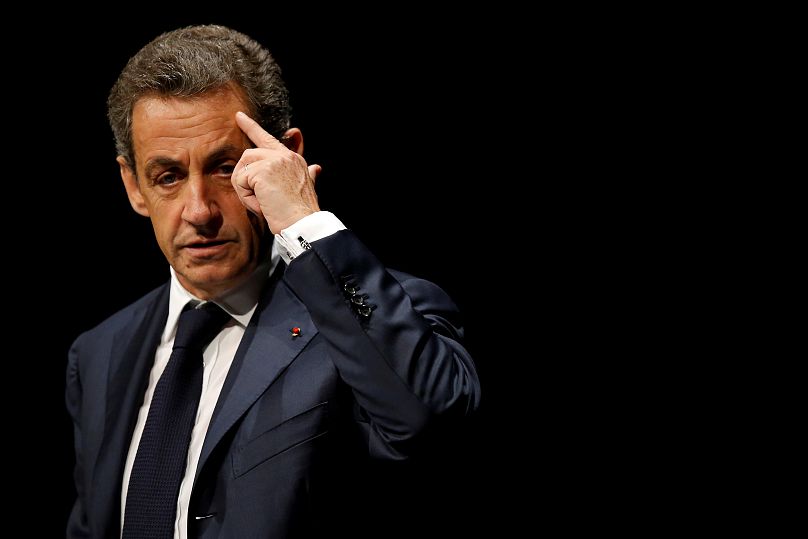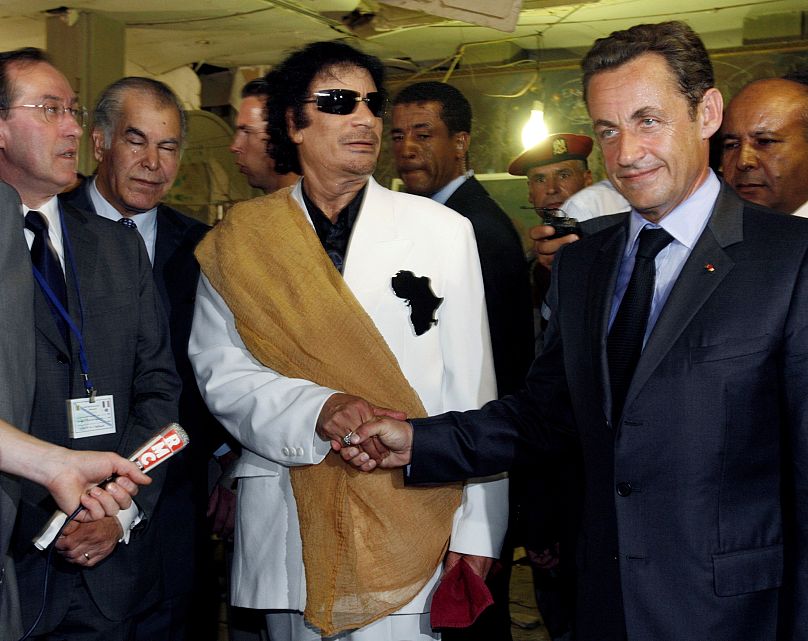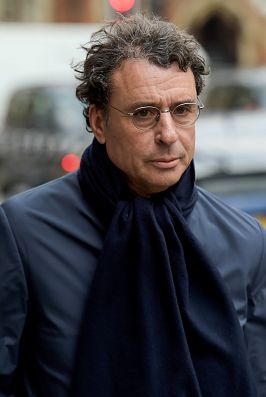Euronews explains what the Libyan case, how it all started, the biggest players in the case, and what could happen next for the former French president.
Former French President Nicolas Sarkozy is being held for questioning by police over alleged illegal funding of his 2007 presidential campaign by the Gaddafi government. But what is the investigation all about?
What's the scandal?
Former French President Nicolas Sarkozy allegedly received funds from the Libyan government to fund his 2007 presidential campaign, according to a 2012 report by French news website Mediapart. The allegations were already made in 2011 by Gaddafi's son, Saif al-Islam, in an exclusive interview with Euronews.
Speaking at the height of the Libyan Civil War in 2011, he was asked about his opinion of Sarkozy. He made the allegations as he expressed outrage at the French government's recognition of the transitional National Council, an interim government set up by rebel groups in Benghazi.
"Sarkozy must first give back the money he took from Libya to finance his electoral campaign. We funded it and we have all the details and are ready to reveal everything. The first thing we want this clown to do is to give the money back to the Libyan people. He was given assistance so that he could help them. But he’s disappointed us: give us back our money," he said.
How did the investigation start?
In 2013, France opened an investigation into the allegations after French news website Mediapart published reports based on claims by Franco-Lebanese businessman, Ziad Takieddine. Takieddine alleged he transferred €5 million from Gaddafi's former intelligence chief Abdullah Senussi to Sarkozy's campaign manager Claude Gueant.
In September 2017, police agents from the French anticorruption body (OCLCIFF) gave judges a report that pointed to an undeclared circulation of cash among people working in the Sarkozy campaign.
Eric Woerth, former treasurer of the campaign, admitted to distributing cash to campaign workers but said the money came from anonymous donations.
What rules were allegedly broken?
Initially, an investigation opened into embezzlement of public funds and influence peddling — but the scope has since expanded to include the “illegal funding of Sarkozy’s presidential campaign in 2007,” said a source close to AFP.
Who's involved?
Nicolas Sarkozy: Police suspect him of illegally financing his 2007 campaign with money from the Libyan government — claims he has always denied.
In December 2007, Gaddafi made an official visit to France, where Sarkozy received him in the Elysee Palace.
Muammar Gaddafi: The late Libyan dictator allegedly financed Sarkozy’s campaign in 2007. Under Gaddafi, Libya was a wealthy country because of its oil resources but was isolated in international diplomacy. According to Mediapart, Gaddafi and Sarkozy arranged the details of the money transfer during a visit Sarkozy made to Tripoli on October 6, 2005, ordering the transfer of €50 million.
Gaddafi, who was killed by Libyan rebels in 2011, has never been able to make any statement on the allegations.
However, his son Saif al-Islam Gaddafi told Euronews in 2011 that Sarkozy had to "repay Libya the money he took for his election campaign."
Ziad Takieddine: A Franco-Lebanese businessman who helped make the money transfer to Sarkozy. He claims to have transferred €5 million in a briefcase to Sarkozy's campaign manager at the time.
Alexandre Djouhri: A former Sarkozy aide, Djouhri is suspected of funneling funds from Libya to France. He was arrested in London in January and is fighting extradition to France. He’s wanted for money laundering as part of the case, but has denied the allegations.
Claude Gueant: As former minister of the interior and chief of staff, Gueant was Sarkozy’s right-hand man.
He allegedly received the money from Takieddine at the time. Earlier this year he was placed under police investigation over a €500,000 bank transfer in 2008. Gueant denied any wrongdoing, claiming the money came from the sale of two paintings.
Brice Hortefeux: Former Minister of the Interior, Overseas Territories and Territorial collectivities, he accompanied Sarkozy during his visit to Tripoli in 2005.
Hortefeux was also questioned by police without being held in police custody on Tuesday.
Eric Woerth: Former treasurer of the Sarkozy campaign in 2007. He’s admitted to distributing cash to campaign employees, without signaling it in the official campaign bank statements. Authorities are seeking to prove that this money came from Gaddafi. Asked about the origin of the money, Woerth said the money came from donations.
Fabrice Arfi and Karl Laske: The Mediapart journalists who initially broke the story. They were first to publish a Libyan official document from 2006 stating that Gaddafi had given Sarkozy €50 million for his campaign. The document was called a "fake" by Sarkozy at first — but French courts ruled the document was real in 2016.
Bachir Saleh: Saleh was Gaddafi’s former treasurer, and said Gaddafi financed Sarkozy, according to Le Monde.
Choukri Ghanem: Oil minister under Gaddafi in 2006 and during Sarkozy’s campaign, authorities believe he was a key player in the funnelling of funds between Libya and France. After the Libyan revolution, Choukri fled to Europe, and resided in London and Vienna. He was found dead in the Danube on April 29, 2012.
What could happen next?
Sarkozy is still in "garde a vue," which means he can be held in custody for up to 48 hours. If prosecutors consider the evidence gathered sufficient, he could then potentially appear in front of a judge and face charges.














